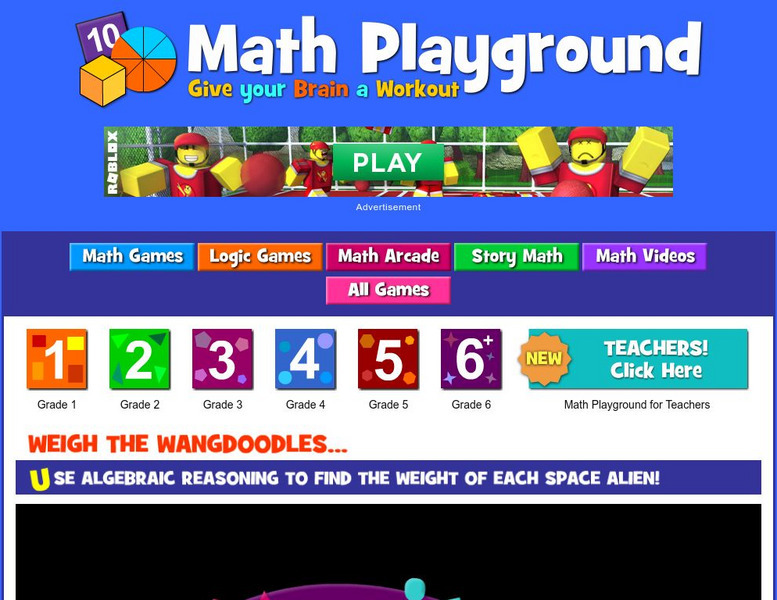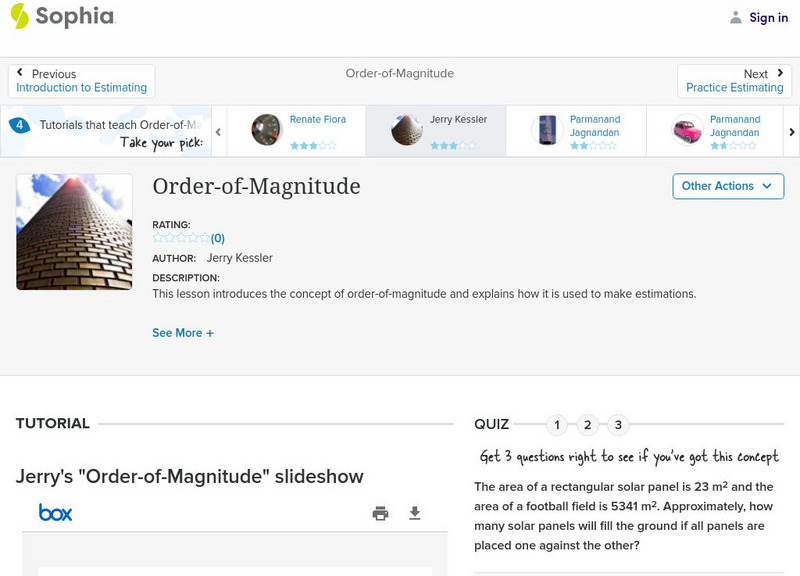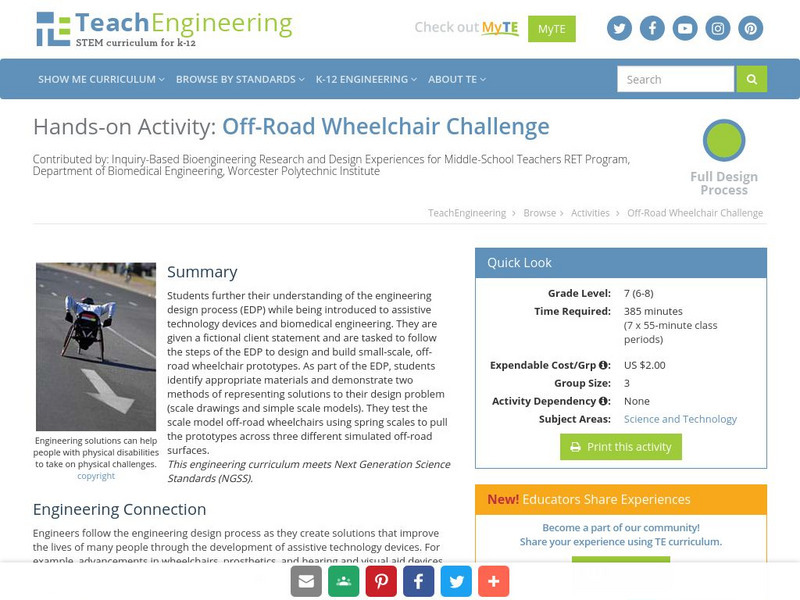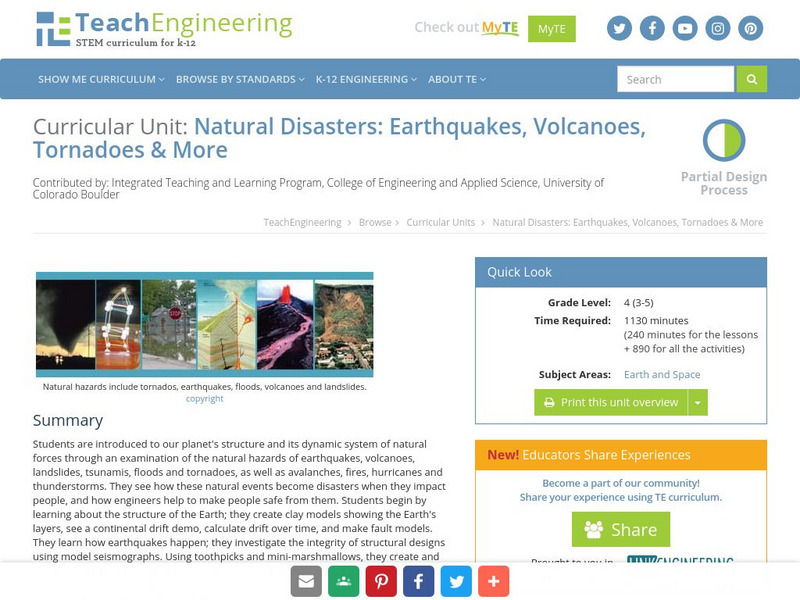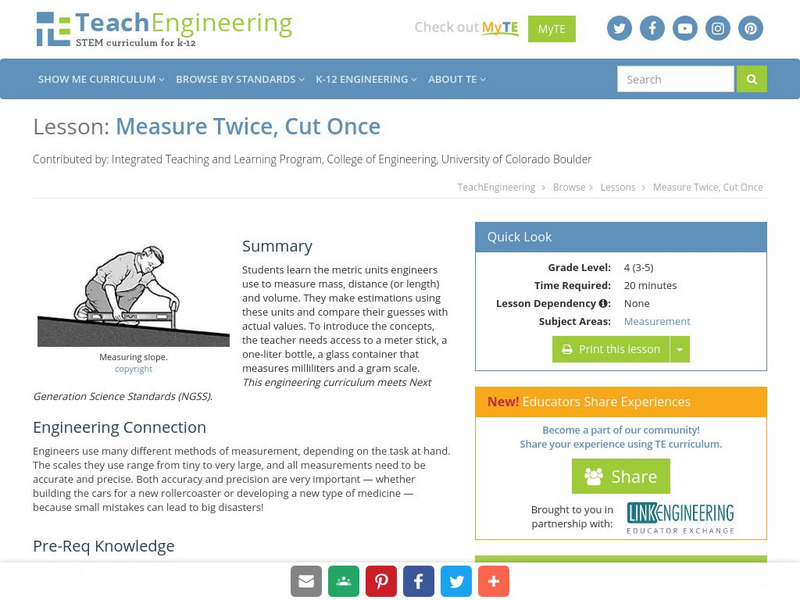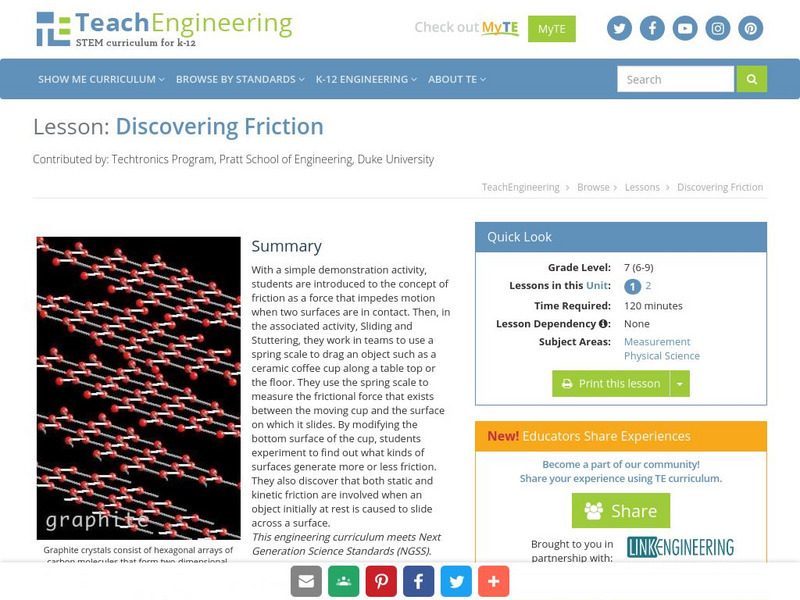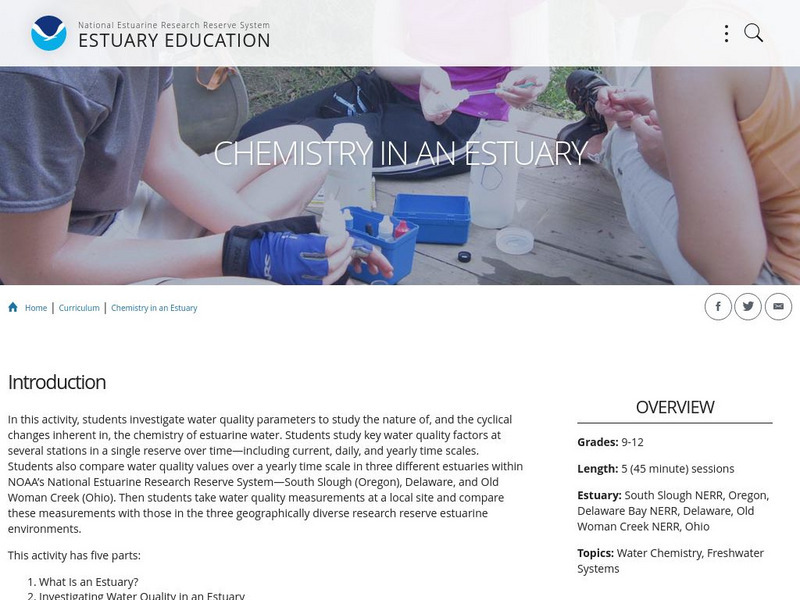CK-12 Foundation
Ck 12: Geometry: Dilation
[Free Registration/Login may be required to access all resource tools.] This concept introduces dilations and how to find scale factors. Students examine guided notes, review guided practice, watch instructional videos and attempt...
Science Education Resource Center at Carleton College
Serc: Virtual Earthquake
An activity-based program designed to introduce the concepts of how an earthquake epicenter is located and how the Richter magnitude of an earthquake is determined.
TeachEngineering
Teach Engineering: Tornado!
Students learn about tornadoes - their basic characteristics, damage and occurrences. Students are introduced to the ways that engineers consider strong winds, specifically tornadoes, in their design of structures. Also, students learn...
Physics Classroom
The Physics Classroom: Thermal Physics: Temperature and Thermometers
Use this interactive tutorial to introduce students to the concepts of temperature and thermometers.
Math Playground
Math Playground: Weigh the Wangdoodles
The interactive activity has students practice using a scale and matching the weight assigned to each Wangdoodle to different scales. The activity introduces learners to multiple algebraic equations.
Sophia Learning
Sophia: Order of Magnitude
This slide show presentation introduces the concept of order-of-magnitude, and how it is used to estimate large values in physics.
Stanford University
Stanford University: How Big Is It?
Lesson provides an activity that introduces the nanoscale using the metric system.
University of Sydney (Australia)
Thermal Physics Module/temperature and Heat [Pdf]
A lengthy set of lecture notes on the distinction between heat and temperature. The science of thermography is introduced; the Kelvin temperature scale is explained and compared to the Celsius temperature scale. The meaning of a triple...
ClassFlow
Class Flow: Similar Figures
[Free Registration/Login Required] This flipchart is designed to introduce proportional relationships between similar figures. It also introduces the concept of scale factor.
TeachEngineering
Teach Engineering: Off Road Wheelchair Challenge
Students further their understanding of the engineering design process (EDP) while being introduced to assistive technology devices and biomedical engineering. They are given a fictional client statement and are tasked to follow the...
TeachEngineering
Teach Engineering: Nanotechnology as a Whole
Students are given a general overview of nanotechnology principles and applications, as well as nanomaterials engineering. Beginning with an introductory presentation, they learn about the nano-scale concept and a framework for the...
Columbia University
The Climate System: Atmospheric Forces, Balances, and Weather Systems
The large scale horizontal flow of air in the atmosphere is driven by the imbalance of net radiation over the globe. This resource introduces us to the physical laws governing the horizontal motion of air. It also describes types of...
TeachEngineering
Teach Engineering: Magic Magnetic Fluid
Students are introduced to a unique fluid--ferrofluids--the shape of which can be influenced by magnetic fields. This activity supplements traditional magnetism activities and offers comparisons between large-scale materials and...
University of Oregon
University of Oregon: Interactive Nolli Map of Rome: 1748 Map of Rome
Interactive Nolli Map introduces students to Rome and the structure of its urban form based on the work of eighteenth-century Italian architect Giambattista Nolli. Using the map engine, navigate through the city at a variety of scales,...
Other
Iste: Computational Thinking for All
Advances in computing have expanded our capacity to solve problems at a scale never before imagined, using strategies that have not been available to us before. This professional article introduces educators to the idea of teaching...
TeachEngineering
Teach Engineering: Natural Disasters
Students are introduced to our planet's structure and its dynamic system of natural forces through an examination of the natural hazards of earthquakes, volcanoes, landslides, tsunamis, floods and tornados, as well as avalanches, fires,...
TeachEngineering
Teach Engineering: The Force of Friction
In the first of two lessons of this curricular unit, students are introduced to the concept of friction as a force that impedes motion when two surfaces are in contact. Student teams use spring scales to drag objects, such as a ceramic...
TeachEngineering
Teach Engineering: Measure Twice, Cut Once
Learners learn the metric units engineers use to measure mass, distance (or length) and volume. They make estimations using these units and compare their guesses with actual values. To introduce the concepts, the teacher needs access to...
TeachEngineering
Teach Engineering: Discovering Friction
With a simple demonstration activity, students are introduced to the concept of friction as a force that impedes motion when two surfaces are in contact. Then, in the Associated Activity (Sliding and Stuttering), they work in teams to...
Other
Science4 Us: Science Tools
The Tools module introduces students to the tools scientists use for both qualitative and quantitative observations. Students learn to use tools such as their senses, rulers, and balance scales through hands-on activities.
NOAA
Noaa: Estuaries 101 Curriculum: Chemistry in an Estuary
This activity introduces students to the complex chemistry of estuarine water. Students investigate how chemical and physical water quality factors-pH, temperature, dissolved oxygen, and salinity-change and interact over varying time...
TeachEngineering
Teach Engineering: Forces and Graphing
This activity can be used to explore forces acting on an object, to practice graphing experimental data, and/or to introduce the algebra concepts of slope and intercept of a line. A wooden 2x4 beam is set on top of two scales. Students...
University of California
Uc Davis Geo Wiki: Chemical Budgets of Oceanic Elements
To the extent that the composition of the ocean remains constant, the rate at which any one element is introduced into seawater must equal the rate of its removal. A listing of the various routes of addition and removal, together with...
Khan Academy
Khan Academy: Master Drawings
The purpose of this lesson is to introduce you to the pleasure of looking at master drawings. Through the presentation of large-scale details, videos and close-up images simulate the experience of looking at a drawing with a magnifying...




